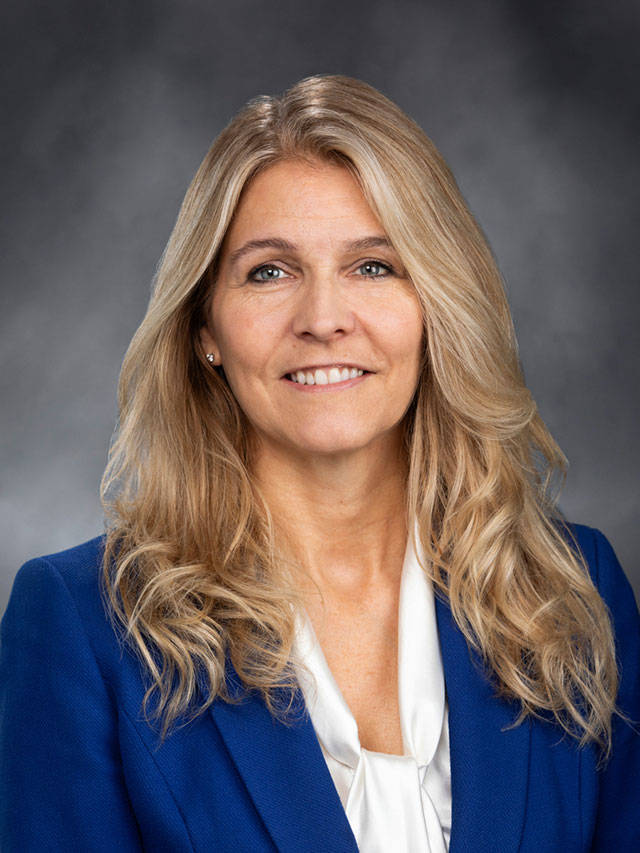Foster care hits close to home for Tina Orwall.
Her mother, a runaway teen, grew up in the flawed Illinois state system.
It also tugs at the heartstrings of Jim Berrios. His wife, Suzanne, was a foster child.
Today, Orwall and Berrios want to be a part of providing something better for those caught in the throes of foster placement and who are in need of essential services and genuine support.
When Berrios, a Kent businessman who helps struggling youth and families, approached Orwall, a state representative, about improving the foster care landscape in Kent, she was ready.
“I saw it as an opportunity for us to actually create a new kind of partnership in Kent that not only can help families but can change the system,” said Rep. Orwall, D-Des Moines, who represents Kent and neighboring cities in the House’s 33rd legislative district. “We can agree the system isn’t working. … You see these kids at multiple placements. They get moved at all these different communities.
“What’s unique about Kent is the community is reaching out and saying, ‘We want to be a partner, and we want this to work differently and more effectively in our community,’” Orwall said.
Berrios added: “I want our shared goal to be keeping our kids in Kent. … to support foster youth who come from Kent as they grow up, so they feel connected and invested in Kent. We need to invest in their skills and education, so that they experience what it really means to be part of a community that cares and positions them to give back when they are older.”
Enter The Mockingbird Society.
The nonprofit, advocacy organization is making Kent a priority, with an innovative, community-led, state-supported model. The Keep Our Kids In Kent With Mockingbird Family network – now in its formative and recruiting stages – hopes to be up and running this year, with financial commitment from Gov. Jay Inslee’s newly-established Department of Children, Youth and Families.
Agencies, civic and faith-based groups, schools and nonprofit organizations are among the stakeholders that have joined a collaborative plan in Kent.
“It’s really like the whole community coming together to say, ‘You know? We want to help,’ ” Orwall said.
Mockingbird’s approach is different, and it hopes to make an impact in recruiting and retaining foster families.
“The big thing for me is that everyone is coming together for one sole purpose,” said Fernando Clara, director of practice innovation for The Mockingbird Society.
The key is recruiting and supporting foster families.
The Mockingbird model works like a wheel, with connecting parts. At the center are experienced “hub home” providers who support 6-to-10 “satellite” foster families to form a “constellation.” Hub homes are crucial in that they provide respite care, organize monthly gatherings for families and become the “go-to” haven for foster parents and youth when they have questions, are dealing with problems or just want to talk.
The model is designed to support, develop and retain quality foster families who can meet the challenging and complex needs of foster children and youth. The idea is to give foster youth a chance at a safe, typical childhood experience with a supportive family structure.
“It’s like an extended family,” Clara said. “So whenever a foster parent needs respite care for the kids, it’s literally like going to uncle’s house or aunt’s house, and they’re just spending the night … and then they go home to the regular foster family. … They all are connected … so they are not going over to a stranger’s place.”
The Mockingbird Family model has been demonstrated to stabilize placements and retain foster parents at rates well beyond any traditional system, Clara said.
If the model works, it goes far in keeping foster kids living and growing up in the same neighborhood.
“In this system, young people remain in their home community when they enter foster care,” Clara explained in his online blog. “Biological parents are viewed as a support and not the problem, promoting reunification. Families who are about to have their child removed can connect to a Mockingbird family, so they can receive the support needed to avoid having their child enter foster care in the first place.
“Our system ensures that siblings who can’t live in the same house can still be in the same Mockingbird constellation. And, if a placement change is needed, it happens in the same constellation. All of this to ensure that the young person doesn’t lose their sense of community and their connections to school, friends and family, just because they have to go into foster care.”
Without a strongly supported hub, the wheel won’t turn. Collaboration, Orwall insisted, will keep it rolling.
“What’s daunting to families I think when they consider being part of it is what level of support they will receive,” Orwall said. “Knowing that not only do they have these agencies behind them, they have a community behind them. That’s going to make a difference to who comes to the table and stays at the table, because I think it’s very challenging to be a foster parent, especially if you don’t feel like there’s help when things are not going well.
“My hope is that they are going to see there’s a lot of support throughout the process,” she said. “We need to keep it very local, and really let people know that these are our kids. We want them to feel a part of the community because they’re going to give back. They are our future leaders.”
To learn more, please visit mockingbirdsociety.org.
Talk to us
Please share your story tips by emailing editor@kentreporter.com.
To share your opinion for publication, submit a letter through our website https://www.kentreporter.com/submit-letter/. Include your name, address and daytime phone number. (We’ll only publish your name and hometown.) Please keep letters to 300 words or less.

